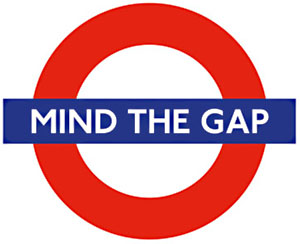 Every time a health insurance company announces a rate hike, a phalanx of conservatives are ready to step in and declare that it’s the fault of Obamacare. But flashy rate hikes aside, overall health inflation has actually been slowing down lately. Jonathan Bernstein wants to know why liberal hackdom has been largely silent about this:
Every time a health insurance company announces a rate hike, a phalanx of conservatives are ready to step in and declare that it’s the fault of Obamacare. But flashy rate hikes aside, overall health inflation has actually been slowing down lately. Jonathan Bernstein wants to know why liberal hackdom has been largely silent about this:
What we don’t have, and haven’t anywhere that I’ve seen it, are liberal economists claiming that the entire slowdown in costs has been ACA-related, or even the bulk of it (the bulk is in fact, economists tell us, recession-related, and of the rest it’s not altogether clear where it came from).
Just as we didn’t see any liberal economists last year arguing that the economy was in fact way more healthy than people thought. If anything, in the lead-up to an election with a Democrat in the White House, most prominent liberal economists stressed the weaknesses of the economy.
There are plenty of liberal hack pundits; there’s nothing about being a liberal that prevents people from embracing convenient arguments, even if they’re barely plausible. And there are conservative hack economists, so there’s nothing about being an economist that prevents lame spin. But for whatever reason, there aren’t any liberal economists who function as party apologists. That doesn’t mean that liberal economists are always right about everything; it also doesn’t mean that there’s no biases involved in their work (more, perhaps, in choice of projects, for example). It just means that, as far as I can see, they tend strongly to call them as they see them, rather than adapting their analysis and talking points to whatever the Democratic Party happens to need at the time.
And I’m not saying that there should be liberal hack economists. I don’t think liberals are worse off because of this gap, at all. I just think it’s odd that either there’s no demand for it, or there’s no one willing to fill the demand.
Beats me. Maybe liberals are just more easily embarrassed. The thing that gets me about conservative hackdom isn’t that it exists, but that it’s often so flagrantly ridiculous. There’s a solid core of right-wing economists who seem literally willing to say anything, even if it’s so obviously wrong that a few seconds of googling can prove it. They just flatly don’t care. And they can get away with it because their more temperate colleagues are largely willing to let this stuff slide without comment, instead of actively criticizing it.
The usual liberal explanation for this state of affairs is that we’re simply more dedicated to the truth than conservatives. Maybe so. I wouldn’t bet the farm on it, though. Here are some other possibilities:
- Liberal hack economists are just a little more subtle than conservatives. They don’t make quite the patently outrageous claims that some conservatives make.
- It’s market driven. For some reason, liberals prefer their propaganda with a thicker sheen of pseudoscience than conservatives, so that’s what liberal economists deliver.
- Rightly or wrongly, liberals are truly convinced that they’re right. They’re more willing to let the research take them wherever it goes, because, deep down, they have faith that eventually it will demonstrate what they want to see. Conservatives lack that confidence, so they have to bluster more.
- There are plenty of liberal hack economists out there who say ridiculous stuff, and Bernstein and I are just too wrapped in our own little liberal bubbles to realize it.
I dunno. Generally speaking, I’d say that liberals and conservatives both choose to place their trust in truth-producing systems that help promote their goals. Adherence to textual fidelity (religious fundamentalism, legal originalism, etc.) is popular with conservatives because it’s inherently conservative. Science is popular with liberals because it opens the door to change, something that’s inherently congenial to the liberal project. This stuff interacts in sometimes complicated ways, but it might also be at the core of the differences between liberal and conservative economists who choose to take roles as public intellectuals.








